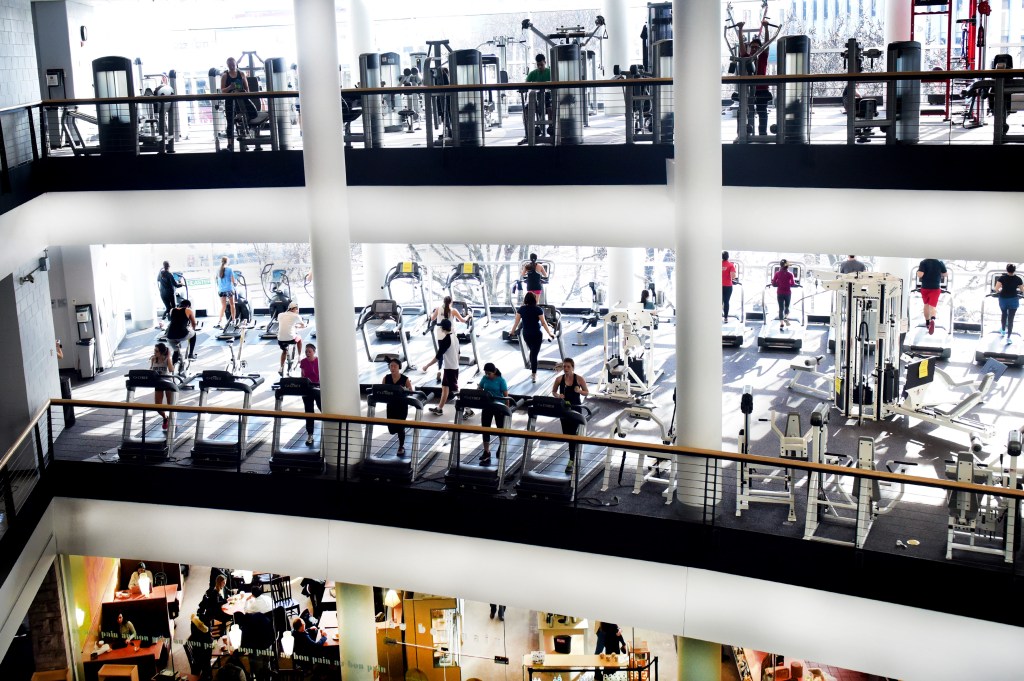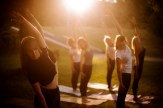Want to get fit in 2018? Then follow these tips

Getting healthy and staying fit are traditionally among the most popular New Year’s resolutions. But statistics show that it can be pretty hard for people to stick to their diet and exercise goals for 365 consecutive days.
Joshua Lee, DPT’21, is a certified personal trainer and the president of Elite Heat, a student organization dedicated to training for obstacle races like Tough Mudder. Here he offers up five diet and exercise tips to get you started in 2018, with an eye toward helping you keep the promise to yourself to build a fitter physique in the new year.
Schedule a daily exercise break
Make it a priority to schedule a daily exercise break of 10 to 15 minutes. “Do that,” Lee said, “and you’re going to achieve way more than going to the gym once or twice a week.”
He underscored the value of getting up and moving by quoting Laozi, the ancient Chinese philosopher who authored the Tao Te Ching: “A journey of a thousand miles begins with a single step.”
If you can’t get to the gym, try incorporating exercise into your daily life. Do a set of pull-ups every time you get up to use the bathroom, he said, or bang out a set of push-ups during the commercial breaks of your favorite TV program.
HIIT it
According to Lee, high intensity interval training, or HIIT, is a strong alternative to steady-state cardio. If you don’t have access to equipment, like an elliptical machine, try HIIT sprints. “High intensity interval training is very useful if you can’t commit an hour or more to exercise,” he said. “If crafted and planned well, you’ll reap the same benefits as steady cardio—and possibly more.”
Eat healthy fats, avoid refined sugar
Lee is a proponent of eating healthy fats, found in foods such as avocados and salmon. “More and more studies, books, and doctors are advocating eating healthy fats to improve cognition, hormone levels, and overall health,” he said. “It’s a societal norm to think that fats are bad, but the science says otherwise.”
His diet includes lots of eggs, almonds, spinach, and ground turkey. He tries to avoid carbohydrates and processed sugar—especially in the morning. For him, snacking is a no-go. “It disrupts circadian rhythms that work to help you lose weight,” he said.
If you’re looking to bulk up, he recommends upping your intake of healthy carbs, including sweet potatoes, buckwheat noodles, and brown rice.
Find your ‘why’
Consider why you want to get fit. For Lee, working out and eating healthfully enabled him to be the best physical therapist he could be at his recent co-op job at Brigham and Women’s Hospital in Boston. “If I don’t prioritize taking care of myself,” he said, “I sure won’t be able to take care of anybody else’s health.”
After you’ve found your “why,” find a physical activity you like and run with it. Go dancing, hiking, rock climbing—anything to get you moving. “By engaging in activities you actually enjoy,” Lee said, “you’ll have a better chance of building consistency and doing it long term as opposed to losing interest.”
App it up
One of Lee’s favorite health and wellness apps is Nike+ Run Club, because it tracks where he runs, how far he runs, and how fast he runs. “It also has weekly reminders that motivate me to keep going,” he said.
He also likes Calm, which offers free guided meditations. “I know some people are great at meditating, but I need someone to tell me what to do when I meditate.”
His “app of last resort” is the iPhone Health app, which tracks his steps. Sometimes he’ll check the app, realize he’s forgotten to do much walking that day, and then “find the nearest set of stairs to get a couple steps in.”





